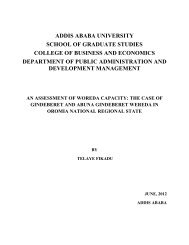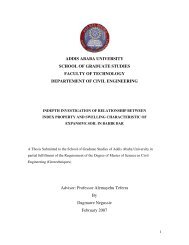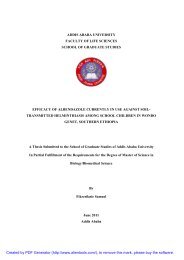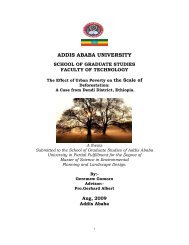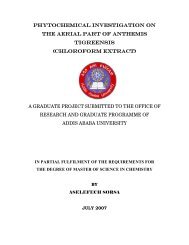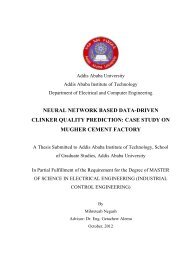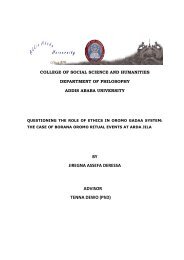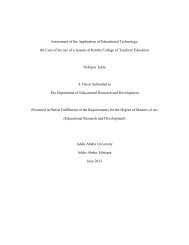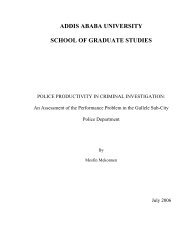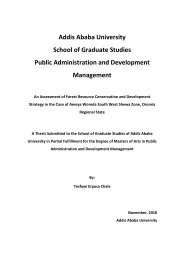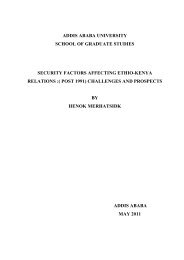FACTORS THAT CONTRIBUTE TO THE PROBLEMS EFL ...
FACTORS THAT CONTRIBUTE TO THE PROBLEMS EFL ...
FACTORS THAT CONTRIBUTE TO THE PROBLEMS EFL ...
You also want an ePaper? Increase the reach of your titles
YUMPU automatically turns print PDFs into web optimized ePapers that Google loves.
Item No.<br />
Table-1a: Learners’ responses that refer to listening problems related to unfamiliar<br />
words, difficult grammatical structures, and complex sentences<br />
Students’ No.<br />
Never<br />
Students’ %<br />
Students’ No.<br />
The first question was asked to know whether unfamiliar words, including<br />
jargon and idioms, interfered with the learners’ listening comprehension. The great<br />
majority of the students 129/149 (86.87%) have responded that unfamiliar words,<br />
including jargon and idioms (sometimes, often, always) interfered with their<br />
listening comprehension, and more than half 85/149 (57%) of the students have<br />
also responded that this problem often or always interfered with their listening<br />
comprehension.<br />
Seldom Total<br />
positive<br />
Students’ %<br />
Students’ No.<br />
Students’ %<br />
LEVEL OF DIFFICULTY<br />
The second question was asked to know whether complex grammatical<br />
structures interfered with the learners’ listening comprehension. The great majority<br />
of the students 111/149 (74.49%) have responded that difficult grammatical<br />
structures (sometimes, often, always) interfered with their listening comprehension.<br />
Similar to item number 2, more specific cross-examining question was asked,<br />
which appeared on item number 5, to know whether length and complexity of<br />
sentences interfered with the learners’ listening comprehension. The great majority<br />
of the students 133/149 (89.24%) have responded that complexity of sentences<br />
(sometimes, often, always) interfered with their listening comprehension, and more<br />
than half 100/149 (67.1%) of the students have also responded that this problem<br />
often or always interfered with their listening comprehension.<br />
Sometimes Often Always Total<br />
negative<br />
Students’ No.<br />
Students’ %<br />
1 7 4.69 13 8.72 20 13.41 44 29.53 48 32.21 37 24.83 129 86.57<br />
2 13 8.72 25 16.77 38 25.49 44 29.53 35 23.48 32 21.47 111 74.48<br />
5 4 2.68 12 8.05 16 10.73 33 22.14 49 32.88 51 34.22 133 89.24<br />
From the result obtained above, it is possible to generalize that unfamiliar<br />
words, complex grammatical structures, and complex sentences interfere with the<br />
listening comprehension of the great majority of the students. This confirms<br />
Rubin’s opinion (1998) which shows that the difficulty in listening comprehension is<br />
39<br />
Students’ No.<br />
Students’ %<br />
Students’ No.<br />
Students’ %<br />
Students’ No.<br />
Students’ %




